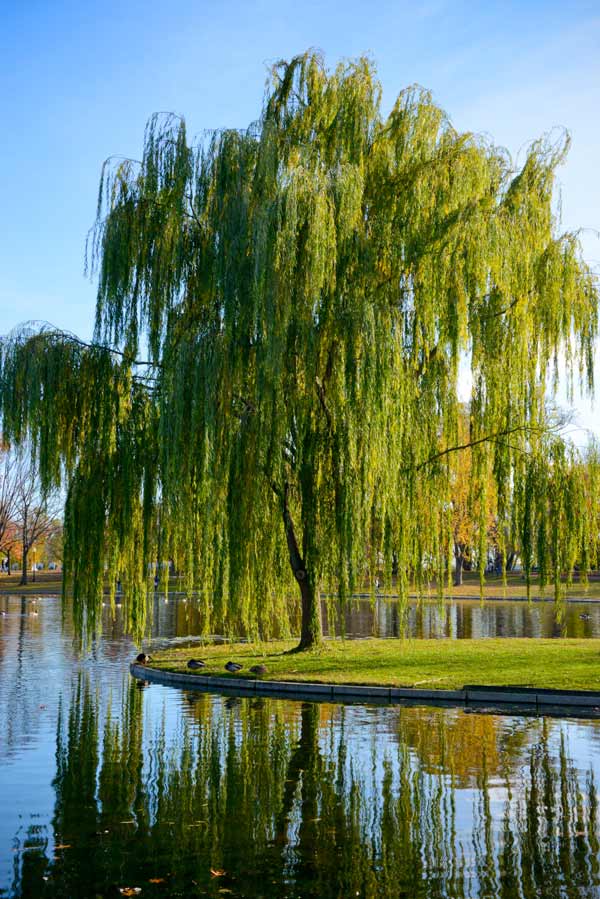The views expressed in our content reflect individual perspectives and do not represent the authoritative views of the Baha'i Faith.
O Ye Dwellers in the Highest Paradise! Proclaim unto the children of assurance that within the realms of holiness, nigh unto the celestial paradise, a new garden hath appeared, round which circle the denizens of the realm on high and the immortal dwellers of the exalted paradise. Strive, then, that ye may attain that station, that ye may unravel the mysteries of love from its wind-flowers and learn the secret of divine and consummate wisdom from its eternal fruits. Solaced are the eyes of them that enter and abide therein! – Baha’u’llah, The Hidden Words, p. 27.
Once upon a time in a land full of mysteries and much beauty a garden grew.
Expansive in size and gorgeous to look at, the garden contained various types of flowers, plants and trees of all kinds. It belonged to the most skillful gardener ever known in that land. He loved nature, and the evidence of this could easily be seen in the commitment and sacrifice he made to ensure his garden reached its potential. With great effort, he had cultivated the most amazing vegetation, full of brilliant colors, perfumes and fruits. His love for these plants meant that he always tended to them himself, ensuring they received the necessary attention and care needed to grow properly.
Every day, at dawn, the gardener would take a walk in the garden, inspecting and enjoying its beauty. After he lovingly tended the plants, he would leave through the garden gate, passing by a drooping tree which had long leafy branches bent to the ground.
One summer day the gardener bid all his plants goodbye, watering them thoroughly in preparation for his annual vacation. During his absence the plants, flowers and trees gradually forgot to focus on their task at hand: to grow, multiply and be as fruitful as possible. Instead they began to chat, at first curious to catch up on all the latest news. Once there was no more news to exchange, the focus of their conversations shifted to themselves and how they compared to each other.
The roses held their heads high and talked of their soft colorful petals. They stressed their beauty, famed in the writings of various poets all over the world. The hyacinths didn’t want to come across as narcissistic as the roses, so in a muted and somewhat modest manner, they highlighted the penetrating perfume of their pervasive scents. The nasturtiums indicated that not only were they colorful and beautiful, but that they served an important purpose: they were beneficial to humans’ health when consumed. Of all the vegetation, the fruit trees vociferously praised themselves, insisting that no other plants could possibly be as productive.
These plants, trees and flowers endlessly compared themselves to each other, giving reasons for being the best. As the hot days stretched into a week these debates became more and more animated, until one day they realized that one plant—the bent tree by the gate—had not exchanged a word with them during all this time.
Was she deaf? Why was she in the garden, anyway? Most thought her useless and unsightly. After all, she did not produce any fruit, nor did her branches reach skyward. In fact, they dropped towards the ground, dragging in the dirt. At best, she looked like a large weed among the other plants.
When the plants quieted down and listened, they noticed a faint sound coming from the tree.
 Chatting amongst themselves, they reached the conclusion that being so unfortunate and so ugly, the tree was constantly weeping—and so they called her the weeping willow.
Chatting amongst themselves, they reached the conclusion that being so unfortunate and so ugly, the tree was constantly weeping—and so they called her the weeping willow.
As the time passed that summer, all the vegetation in the garden grew. The weeping willow also grew- but downwards. With every passing day, she looked more weighed down. Some of the plants had sympathy for her, but most were critical. Why couldn’t she be more like them? Why couldn’t she be tall, upright and beautiful? It just required some effort—why didn’t she even try?
As it often happens in nature, one day the garden experienced very strong winds. Old petals, leaves and pollen flew into the dark sky and landed haphazardly all over. Before long, a few scraggly, weed-like flowers began to pop up near the weeping willow. They were all wind-flowers—dandelions with gauzy seedpods. Rather shy, they only socialized between themselves.
When the noisy wind subsided, the flowers and trees in the garden thought they heard something new from the weeping willow. They were bewildered! They could not believe their ears. The weeping willow wasn’t weeping at all. In fact, she was laughing!
Puzzled and anxious, they looked to each other for an answer. They gathered themselves up and stood tall and demanded to know what the weeping willow was laughing at. Surprised that anyone had addressed her, the tree looked up and explained that she wasn’t laughing at anyone or anything—that she was just happy.
The wind-flowers enquired if she was mad, to which the weeping willow nodded, explaining that she was mad with love. This very much surprised the wind-flowers and they realized that all the vegetation in the garden had mistakenly thought the willow had been weeping all this time, when she had in actual fact been laughing. When they explained this to the willow, she howled with laughter.
As you can imagine, the wind-flowers didn’t have much clout in the garden. They were many in number, but they all felt useless and unappreciated. The other flowers looked down on them. They indicated to the willow that once the wind had blown their seedpods away, they looked bare, thin and unsightly.
Now, it should be said that although our willow had a good sense of humor and considered herself half mad with love, she was wise. She patiently listened to the wind-flowers—their complaints, anxieties, and fears. Then she helped them to understand that the very quality they despised in themselves, their bare and thin stems, signified their selflessness, which in itself was beautiful. They were detached from themselves, she told them, willing to be blown anywhere the wind wished to blow, free and unconstrained. They sacrificed themselves and in so doing, gave new life to uninhabited areas. Most of all, they brought much delight to children all over the world, who loved to blow on them.
The wind-flowers felt comforted and valued. At last, someone had acknowledged them in a positive way. As the days wore on a warm friendship based on trust arose between the willow and the wind-flowers. Then, the evening before the gardener was scheduled to return, the wind-flowers asked the willow a question that had been burning in their hearts from the very first time they had conversed. They wanted to know what it was she loved.
“It’s not what, it’s who,” she said. “I love our beloved master, the gardener. I am the luckiest tree in this garden. Every day I have the opportunity to bend my branches to the ground and kiss the dust where he has walked.”

















Comments
Sign in or create an account
Continue with Facebookor